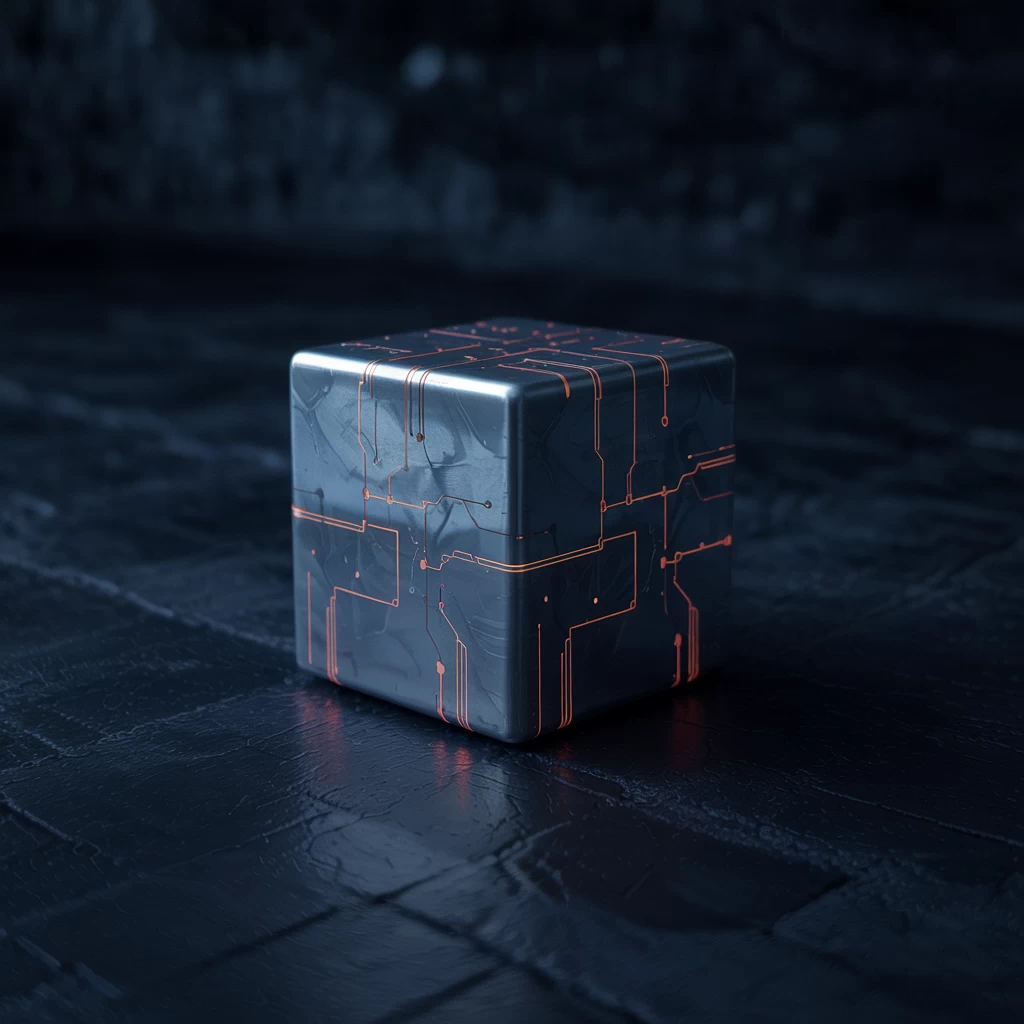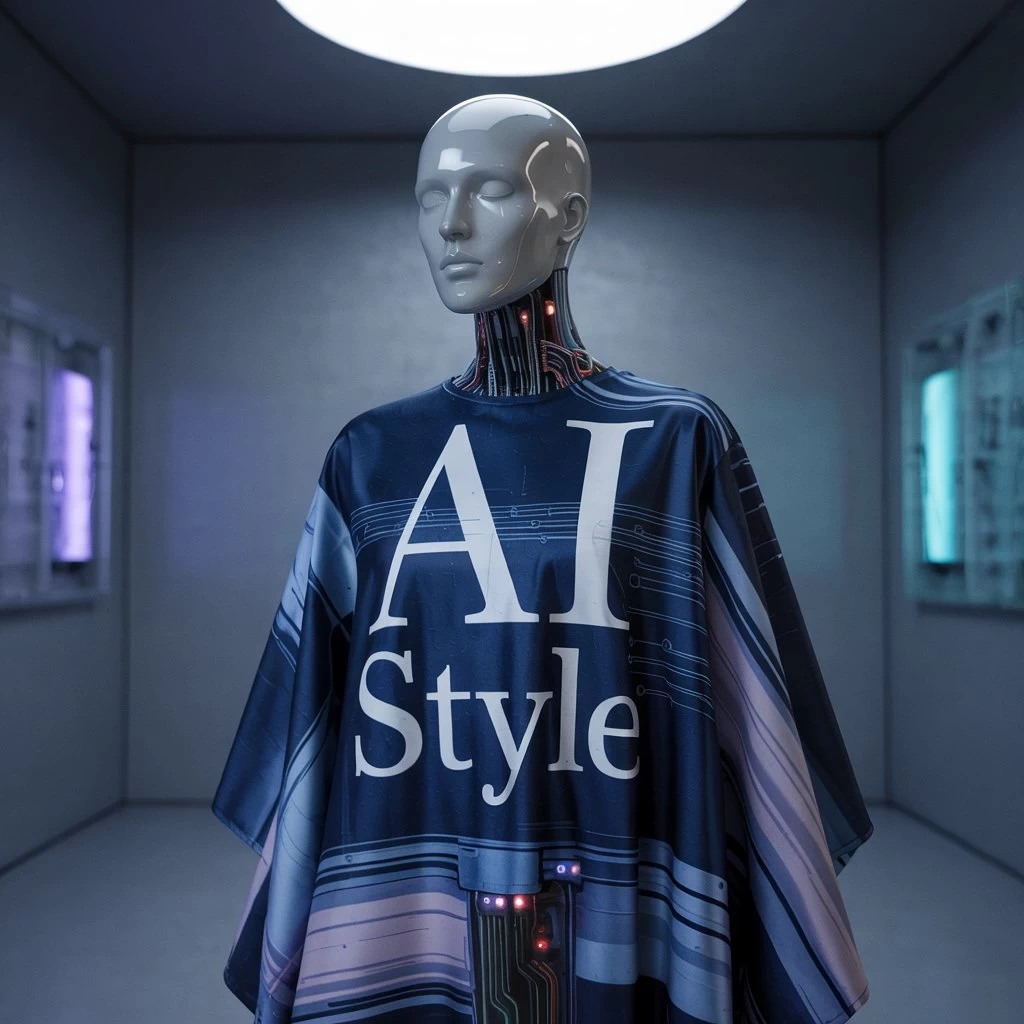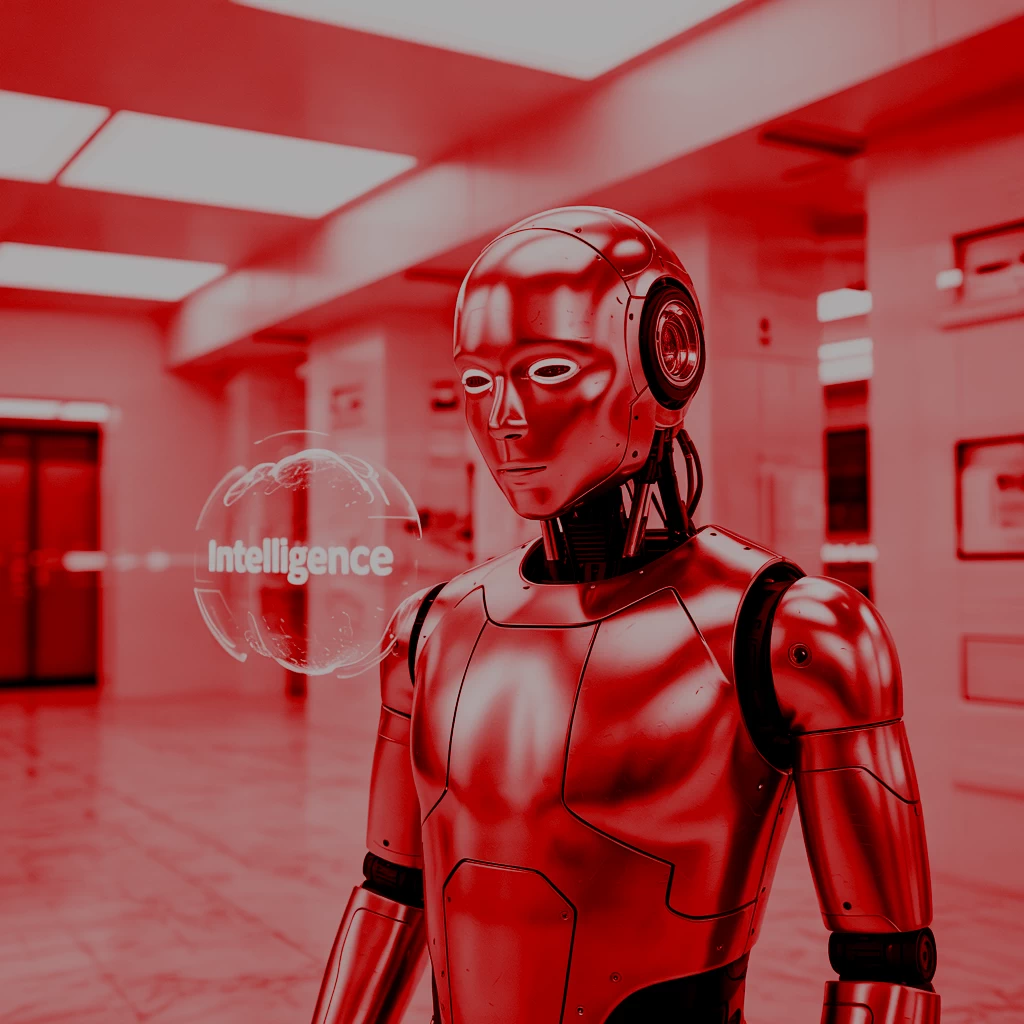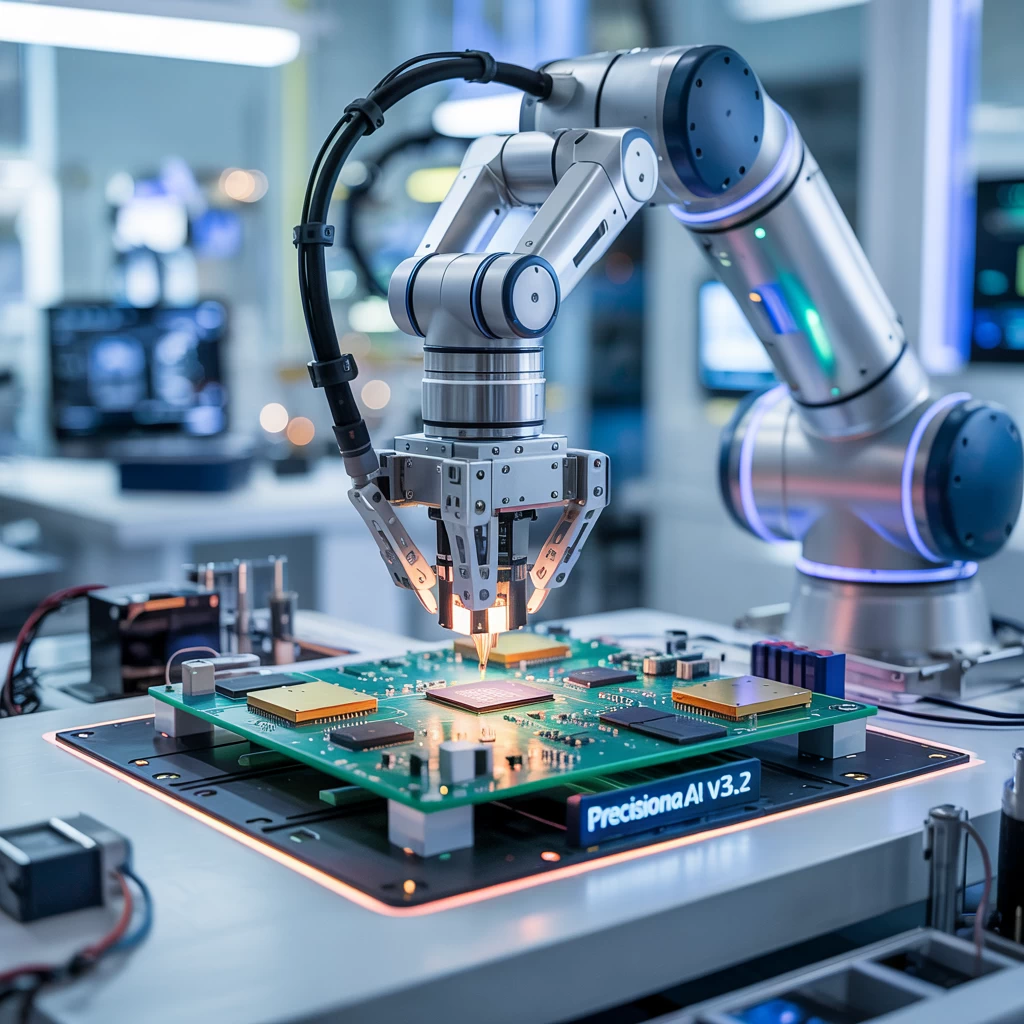
AI technology has evolved from science fiction to business-critical
in just a few short years starting in our opinion around 2022. What once seemed purely futuristic - like talking
robots or self-driving cars - is now part of everyday life, well almost. At its core,
artificial intelligence is about creating machines that can think, learn
and adapt, but as far as thinking goes we are a long way off that.
However, powered by advances in machine learning and deep learning, today's
AI programming can analyze huge sets of data in record times, recognize patterns and
make predictions faster than ever before. AI-generated art with
conversational chatbots expands the range of AI applications
pretty much on a daily basis. AI startups grow fast and innovation accelerates, we're seeing
more tools across every sector.
This evolution isn't just about
automation - it's about creating systems which enhance human decision-making
and creativity and we certainly see that with the likes of Midjourney. As a software developer, marketer or a small business
owner, getting to grips with AI's path will aid in you being able to stay prepared for what's next and there is more coming!
Arguably one of the most exciting areas for AI technology
is healthcare. Machine learning models are helping
diagnose diseases earlier, predict patient outcomes,
and recommend treatments which are or can be personalized to each individual. AI is
being used in radiology to analyze scans faster and more
accurately. It's also powering wearable devices which monitor
health in real time, providing doctors and patients with constant, actionable
data. Actionable is the key issue here - lots of older technology only provides waffle.
As generative AI developes, it's now even reached the point of being capable of assisting
with drug discovery and treatment planning which must be terrifying for the pharma industry although
we have no doubt the governments will protect their interests.
These advances aren't just leading edge - they're life-changing for millions of people around the planet. The integration of AI
into healthcare is expected to reduce costs, improve
efficiency and ultimately save lives - however many people say it wont help, because a patient cured is a customer lost.
With technology as powerful as it is, the future of medicine looks high-tech and yet also more human at the same time.

AI isn't confined to reshaping technology - it's changing how we shop and connect with each other.
In the fashion world, AI is helping designers predict trends, optimize
inventory and also create garments based on customer preferences - which is nothing new in terms of using computers for this.
Virtual fitting rooms and AI-driven styling tools are becoming more
commonplace and customers can see what they look like before they buy.
For marketing, artificial intelligence analyzes customer
behavior to produce relevant messaging, improve targeting and generate customer centric and appealing content.
Tools that once took hours of human effort now deliver in minutes, but we must understand that huge
tech firms are against its use in cerain contexts.
Whether it's writing ad copy or designing product layouts for onscreen display, generative AI is
streamlining the creative process. Brands using AI can adapt faster,
test more and build deeper connections with their audiences - although rumours say that care must be taken on how its used online.
As the AI market grows, fashion and marketing are becoming prime examples
of how modern computing systems can enhance style and storytelling. So if you want a fashion based or marketing based website - our service
is absolutely going to fit your website design vision.
The image of a shiny, humanoid robot has become common and fairly
symbolic of the AI progression - but today's AI
technology is much more practical and widespread. We're
seeing robots powered by AI being used in factories,
warehouses for picking stock etc - nothing new really and even homes. These systems can navigate
spaces, semi-recognize objects and carry out mundane tasks.
The real magic lies in the invisible side of AI though.....
the data-crunching, language-processing, decision-making
capabilities which quietly run the tools you use every day.
Customer service bots for example and recommendation engines, AI modules are often
working behind the scenes like the Wizard of Oz to improve efficiency and
personalization where relevant. It's less about sci-fi and more
about solving real-world problems with intelligent systems (probably less like the Wizard of Oz then!). That's
the beauty of today's AI - it's not just futuristic, it's actually useful.

The AI market is booming, with new AI startups launching daily across industries. These agile companies are often behind some of the most innovative solutions like intelligent automation platforms or logo design, resume screening or even wine tasting. In our opinion they are also behind some of the most boring and dodgy over hyped service providers we have ever encountered.
The funding flowing into AI-focused ventures is accelerating research and bringing fresh talent into the field. Investors and entrepreneurs alike are betting big on AI's future for some reason, because we think it has a long way to go. It can produce websites, but in some areas it is pretty much useless in our view.


Did you know that from the moment you unlock your phone with facial
recognition to when you scroll through personalized
content online, AI technology is probably a part of the technology used in those processes.
It also powers navigation apps, voice assistants, smart home devices
and even spam filters on your emails. But from what we are seeing, beyond convenience tools, AI is
starting to offer deeper value.
Businesses such as this one - ours - could use AI to make
smarter hiring decisions. Schools may use it to personalize
learning plans eventually. Retailers use it to recommend products based
on browsing history. These practical AI applications are
becoming standard - over and above innovations existing with no purpose. As systems
become more adept and therefore better at understanding context, tone and user intent,
the line between human and machine-designed experiences will
continue to blur but in our opinion that is not always a good thing.
Looking ahead we think AI technology will
influence every creative and strategic discipline - with none spared.
Designers already use AI to suggest color palettes and generate
logos inside the hour. Developers (especially incompetent ones or noobs) use AI to write and test code,
but even experienced coders can use it.
Businesses rely on AI to make data-driven
decisions faster. It's not just
about automating tasks - it's about unlocking potential.
The next wave of tools will likely combine multiple
models like

AI technology refers to machines and software systems that mimic human intelligence. It enables websites and apps to make smart decisions, automate tasks and offer personalised experiences for users-something every modern business needs.
AI transforms user experience by analysing behaviour in real time and adapting content or layout accordingly. Imagine a website that knows exactly what your visitors need before they do-it's not just smart, it's strategic.
Popular AI tools for websites include chatbots, recommendation engines, predictive search and sentiment analysis. These tools make your site more interactive, engaging and ultimately more profitable.
Absolutely. AI can analyse keyword trends, optimise content dynamically and monitor competitors more effectively than any manual process. If you want your site to climb search rankings and stay there, AI gives you that competitive edge.
It doesn't have to be. Many AI features are now accessible via cloud-based APIs or plugins, meaning you can start small and scale as needed. Investing in AI today can save you time and money tomorrow by automating what would otherwise require human intervention.
A chatbot is an AI-driven virtual assistant that interacts with users on your site through natural language. It can answer questions, guide visitors and even handle transactions-24/7. That kind of support helps convert visitors into customers.
Yes, AI tools like GPT can generate high-quality content for landing pages, blogs and product descriptions. It's like having a copywriter on demand, helping you maintain fresh and engaging content at scale.
AI can process vast amounts of traffic data and user behaviour in seconds. It identifies trends, predicts outcomes and helps you make data-driven decisions without hiring a full analytics team. It's like having a digital strategist built into your website.
Definitely. AI personalises content, optimises CTAs and triggers automated follow-ups based on visitor actions. The result is a smoother customer journey and higher conversion rates.
AI drives product recommendations, chat-based shopping assistance and personalised marketing. For online shops, this means more upsells, fewer abandoned carts and smarter inventory management. It's like giving your online store its own brain.
When implemented correctly, AI can enhance security by detecting fraud, suspicious behaviour and unauthorised access in real-time. AI also supports compliance with privacy regulations through smart data handling and monitoring. It's a tech-savvy way to protect both your business and your users.
Absolutely. AI tools are now more affordable and accessible, allowing even small websites to offer smart features like chatbots and personalised recommendations. You don't need a tech giant's budget to compete anymore-just smart AI integration.
Yes, many AI plugins are available specifically for WordPress. Whether it's AI-powered SEO, chatbots, or content creation, you can easily extend your site's functionality with minimal setup.
Machine learning is a subset of AI where algorithms learn from data and improve over time without being explicitly programmed. In the context of websites, this means smarter recommendations, better insights and more accurate targeting.
AI can handle the majority of routine queries, freeing up your human staff for complex tasks. This creates a hybrid support model that's efficient and scalable-great for growing websites.
AI automates ad targeting, email personalisation and audience segmentation. It ensures your campaigns reach the right people at the right time with the right message. Better targeting means better ROI.
While AI offers incredible advantages, it does require thoughtful implementation. Poorly configured AI can lead to irrelevant recommendations or robotic user interactions. But with the right setup, it's a game changer not a risk.
Yes, AI can improve accessibility by offering features like voice navigation, automated image descriptions and adaptive interfaces. This ensures your site is usable by everyone, which also boosts SEO and brand reputation.
They analyse user behaviour, preferences and past actions to suggest the most relevant content or products. This keeps users engaged and increases sales by showing them what they're most likely to buy or enjoy. It's personalisation at scale.
The future is smart, fast and tailored. From design automation to real-time personalisation, AI will be at the core of every high-performing site. If you're planning a new site or revamping an old one, integrating AI now puts you ahead of the curve.
Give Mark a call or make contact using the form below.